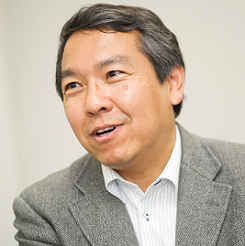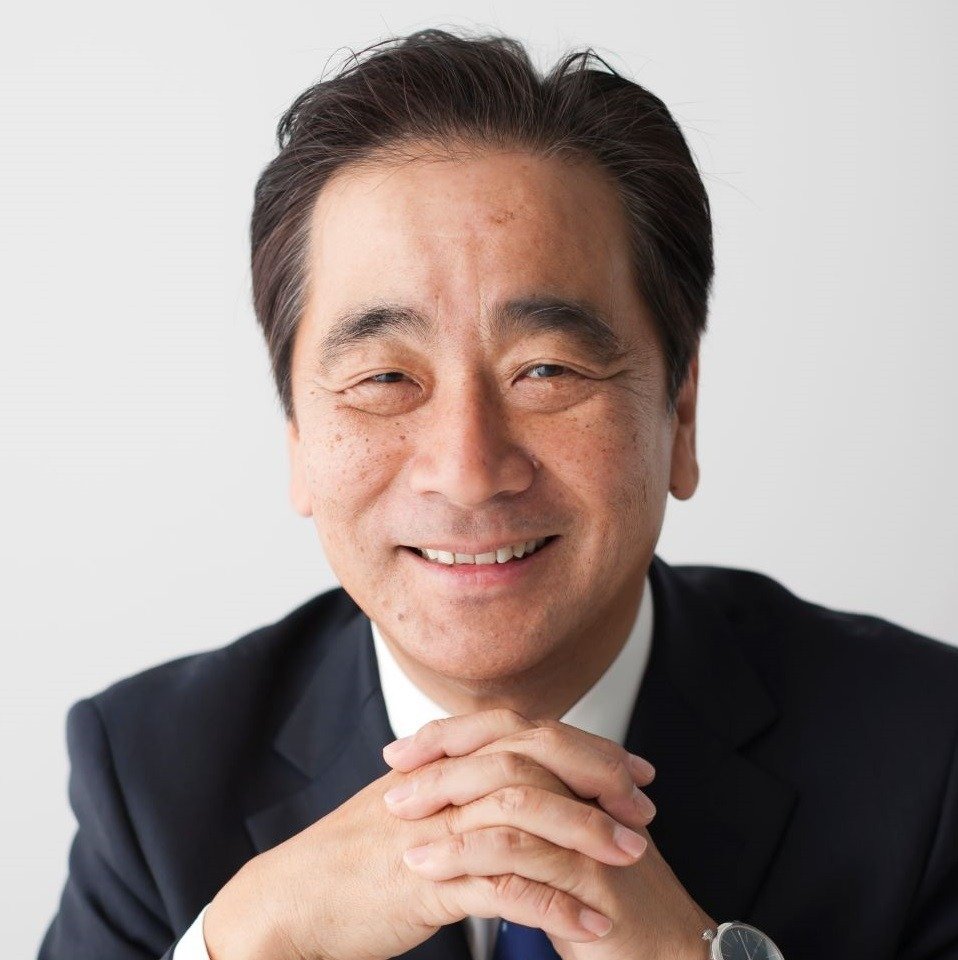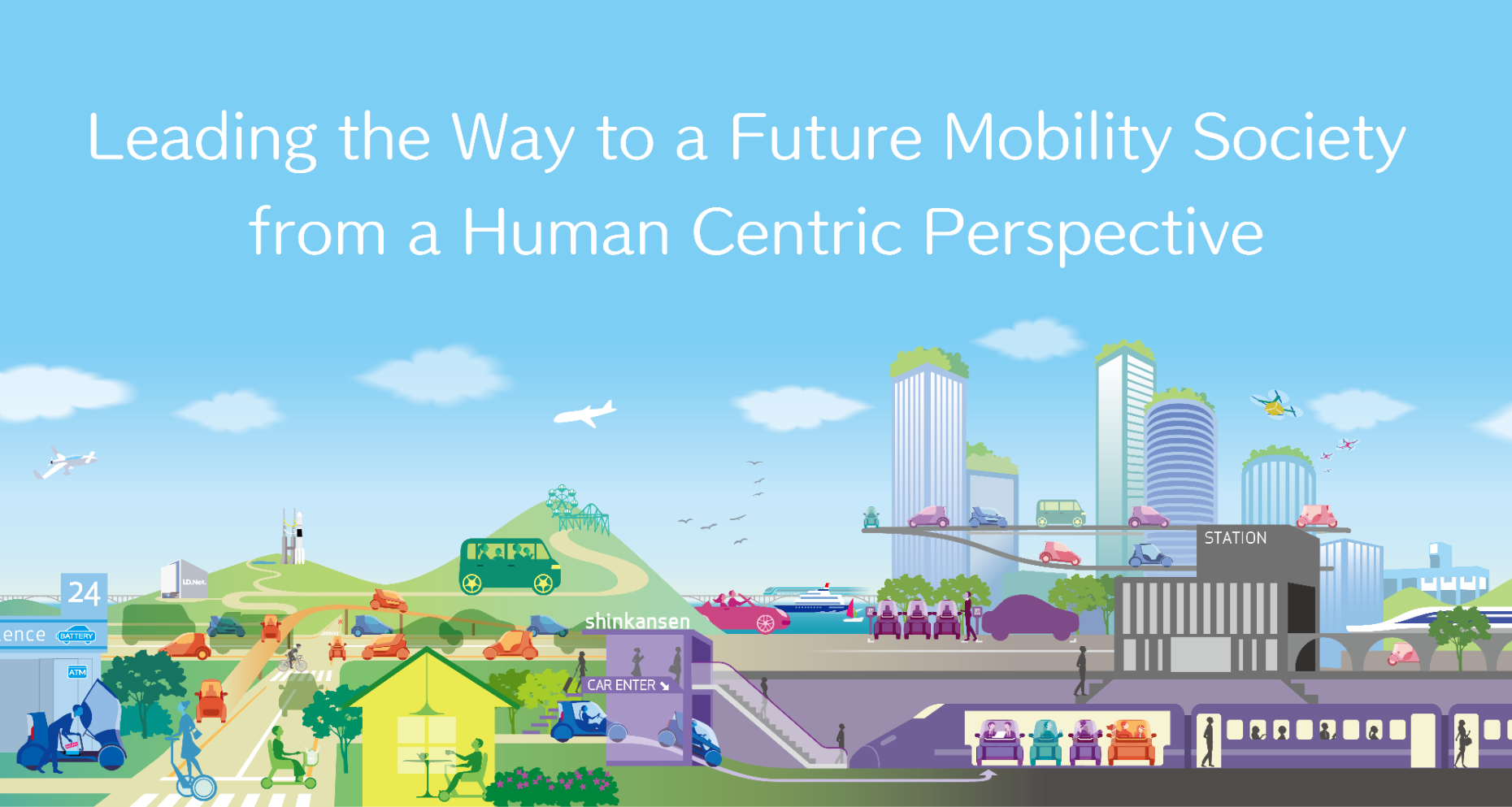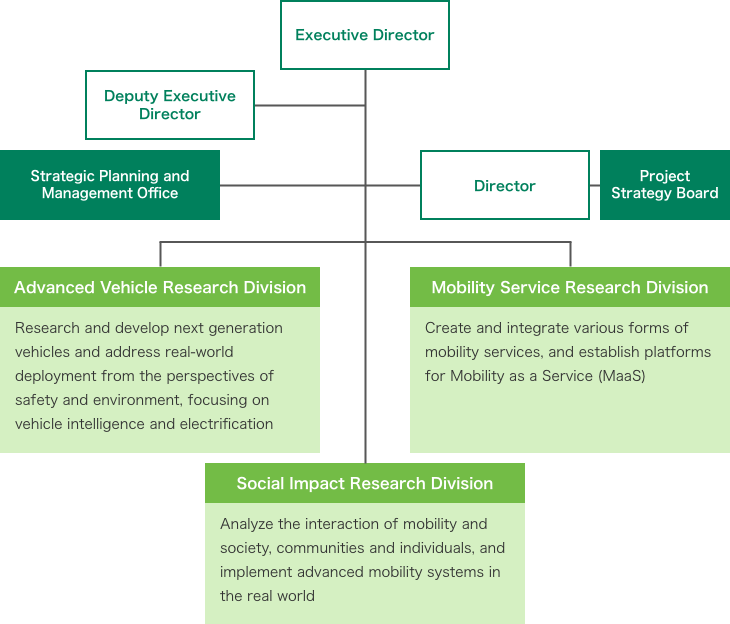ABOUT GREMO
Vision & Missions
GREMO is leading the way to a future mobility society with its wealth of research resources and diverse professionals from a human centric perspective.
SMART - To create intelligent technologies in harmony with people and the environment
DEPENDABLE - To develop methodology that can be used with security and trust
SUPPORTIVE - To optimize systems in harmony with users
ACCESSIBLE - To enable everyone to move anywhere, anytime without stress
Welcome from Directors
TAKADA, Hiroaki Executive Director, Global Research Institute for Mobility in Society

TANIKAWA, Shiro Director, Global Research Institute for Mobility in Society

Organization
Past Directors
Director of Green Mobility Collaborative Research Center
MIYATA, Takashi
July 2011 - March 2012
ONOGI, Katsuaki
April 2012 - September 2014
MORIKAWA, Takayuki
October 2014 - March 2016
Director of Green Mobility Research Institute
ICHINO, Ryoichi
April 2016 - March 2018
SUZUKI, Tatsuya
April 2018 - March 2019
Executive Director of Global Research Institute for Mobility in Society
SUZUKI, Tatsuya
April 2019 - March 2021
TAKADA, Hiroaki
April 2021 - current
Past Deputy Directors
| Deputy Director of Green Mobility Collaborative Research Center | |
|---|---|
| SUZUKI, Tatsuya | October 2014 - March 2016 |
| ICHINO, Ryoichi | October 2014 - March 2016 |
| Deputy Director of Green Mobility Research Institute | |
| HARAGUCHI, Tetsunori | April 2016 - March 2019 |
| Deputy Executive Director of Global Research Institute for Mobility in Society | |
| TAKEDA, Kazuya | April 2019 - March 2020 |
| TAKADA, Hiroaki | April 2020 - March 2021 |
| KAWAGUCHI, Nobuo | April 2021 - current |
CONTACT
Please reach us as directed below.
Nagoya University
Institutes of Innovation for Future Society
Global Research Institute for Mobility in Society
Furo-cho, Chikusa-ku, Nagoya, Aichi 464-8601 Japan
Email: gremo_info [at] mirai.nagoya-u.ac.jp
* Please replace [at] with @ when emailing.
Or, you can send the GREMO team a message using the form below.










